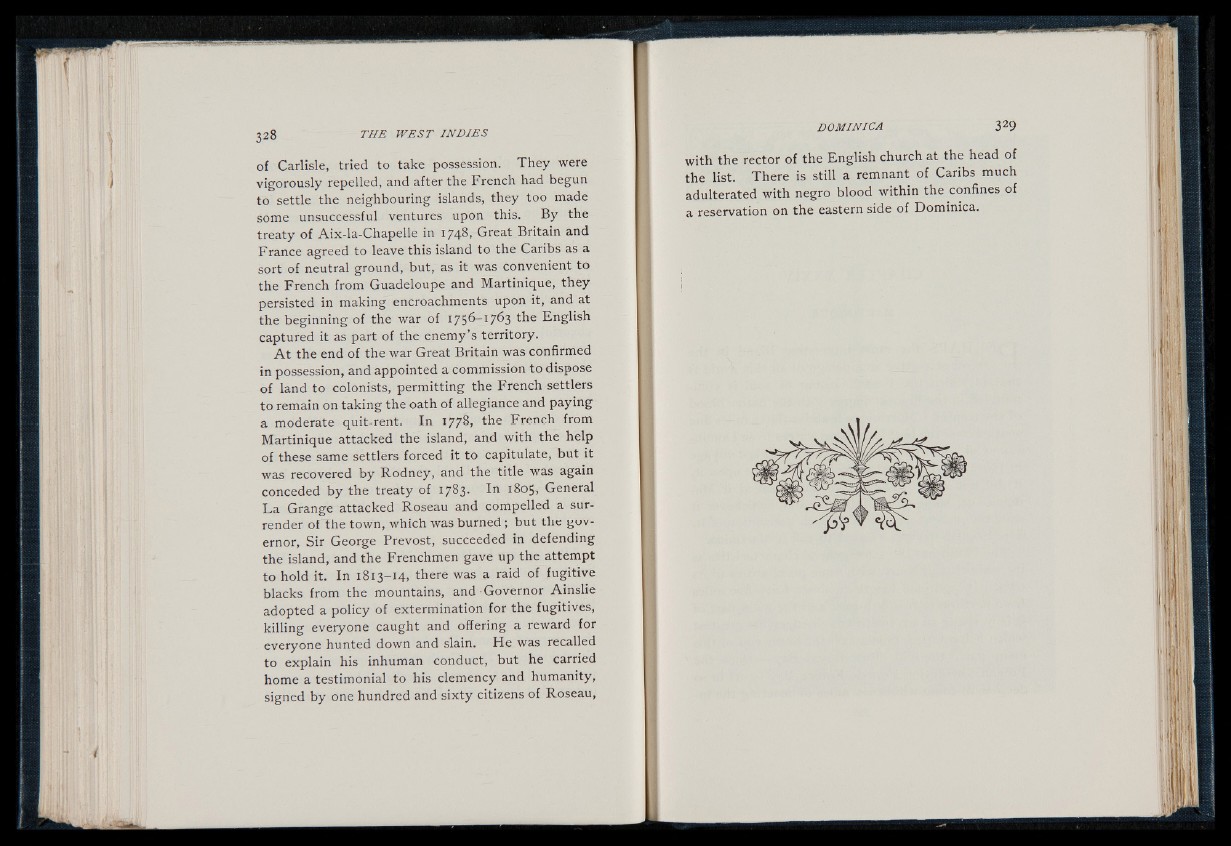
of Carlisle, tried to take possession. T hey were
vigorously repelled, and after the French had begun
to settle the neighbouring islands, they too made
some unsuccessful ventures upon this. By the
treaty of Aix-la-Chapelle in 1748, Great Britain and
France agreed to leave this island to the Caribs as a
sort of neutral ground, but, as it was convenient to
the French from Guadeloupe and Martinique, they
persisted in making encroachments upon it, and at
the beginning of the war of 1756-1763 the English
captured it as part of the enemy’s territory.
A t the end of the war Great Britain was confirmed
in possession, and appointed a commission to dispose
of land to colonists, permitting the French settlers
to remain on taking the oath of allegiance and paying
a moderate quit-rent. In 1778, the French from
Martinique attacked the island, and with the help
of these same settlers forced it to capitulate, but it
was recovered by Rodney, and the title was again
conceded by the treaty of 1783- 1805» General
L a Grange attacked Roseau and compelled a surrender
of the town, which was burned; but the governor,
Sir George Prevost, succeeded in defending
the island, and the Frenchmen gave up the attempt
to hold it. In 1813-14, there was a raid of fugitive
blacks from the mountains, and-Governor Ainslie
adopted a policy of extermination for the fugitives,
killing everyone caught and offering a reward for
everyone hunted down and slain. He was recalled
to explain his inhuman conduct, but he carried
home a testimonial to his clemency and humanity,
signed by one hundred and six ty citizens of Roseau,
with the rector of the English church at the head of
the list. There is still a remnant of Caribs much
adulterated with negro blood within the confines of
a reservation on the eastern side of Dominica.